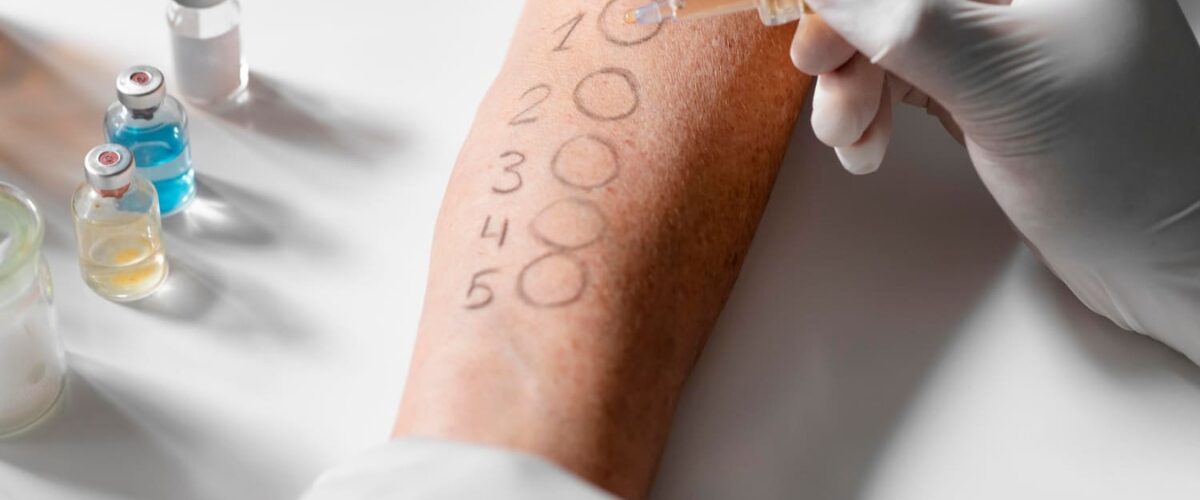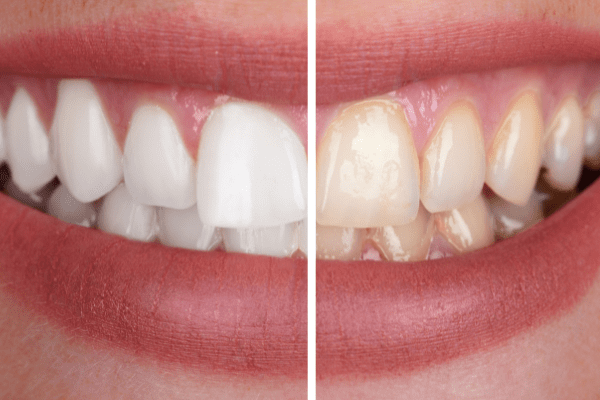
22 May Allergy Test in Malaysia: Benefits and How to Prepare
Allergy Test in Malaysia: Benefits and How to Prepare
By Island Hospital | May 22, 2024 12:00:00 PM
Medical Reviewer: Dr. Khor Yek Huan, Dermatologist
Allergic reactions, encompassing a spectrum of symptoms from mild discomfort to potentially life-threatening responses, can significantly disrupt an individual’s well-being and daily life.
This article explores various types of allergic reactions and how allergy testing can help in the diagnosis and management of those allergies. We will delve into the different types of tests available according to their indications and how to effectively utilise the results to improve your overall well-being.
What is an allergy?
An allergy arises when the body’s immune system overreacts to a harmless substance (allergen), mistakenly identifying it as a threat.
While some individuals are more prone to allergies due to genetics, the route of allergen exposure may vary.
Allergens can be ingested (e.g.,food), inhaled (e.g., pollen), injected (e.g., bee stings, vaccines), or absorbed through direct contact with the skin or mucous membranes (e.g., latex, chemicals in skin products).
Why do allergies happen?
The first time a person is exposed to an allergen, they do not usually experience any symptom. But if the same person is repeatedly introduced to the same allergen, the immune system will build up antibodies or immune cells that remember the allergen, and attack it every time exposure occurs. This buildup is called sensitization.
There are many types of allergic reactions. However, Immunoglobulin E (IgE) mediated type I hypersensitivity and T-cell mediated type IV hypersensitivity are the two most common allergic mechanisms.
In type I hypersensitivity, sensitised IgE binds to a specific immune cell known as mast cells. Activated mast cells then release mediators such as histamine, causing the characteristic symptoms associated with the allergic reactions. IgE mediated hypersensitivity reactions are usually immediate and fast, with symptoms occurring within minutes upon exposure to the allergen. Type I hypersensitivity reactions include angioedema and hives (skin and mucosal); vomiting (stomach); coughing and wheezing (lung); and anaphylaxis (circulatory system involvement with drop in blood pressure).
Whereas for type IV hypersensitivity, allergens will induce recruitment of specific immune cells known as T-lymphocytes via antigen presenting cells. Activated T-lymphocytes will produce cytokines that cause tissue inflammations and the allergic symptoms. Type IV hypersensitivity reactions are usually delayed and appear about 48 to 72 hours after contact has been made with the allergens. Examples of these reactions include allergic contact dermatitis (eczema) and itchy rashes from drug allergies.
Common allergens
From a diverse range of environmental substances, like pollen in the air, to microscopic dust mites, a surprising number of everyday substances can trigger allergic reactions.
Here is a list of common allergens by exposure routes:
| Type of Allergen | Examples |
|---|---|
| Outdoor allergens | |
| Indoor allergens | |
| Ingested Allergens | |
| Skin Contact Allergens | |
| Other Allergens |
Allergy symptoms
Allergies exhibit a broad spectrum of clinical presentations where specific symptoms experienced are mainly dependent on the offending allergen and organs.
The following section shows the myriad of symptoms associated with different types of allergens:
| Type of Allergens | Symptoms |
|---|---|
| Inhaled allergens (Hay fever, allergic rhinitis) | |
| Ingested Allergens (Food allergies) | |
| Skin Contact Allergens (Eczema) | |
| Insect Stings |
It’s important to note that this list is not exhaustive, and the severity of symptoms can vary greatly between individuals.
But if symptoms worsen, immediately seek medical attention.
What is an allergy test?
An allergy test is a tool that enables healthcare professionals to pinpoint the specific allergens triggering your reactions through a series of safe and reliable tests. Once the specific allergens are identified, patients should avoid them if possible to help mitigate their symptoms.
Who should get an allergy test?
Individuals who can benefit from allergy testing include those experiencing or have experienced:
- A history of being allergic to cosmetic products, metal, hair dyes or latex etc.
- Recurrent eczema to particular parts of body whereby contact dermatitis is suspected
- Hand and feet eczema
- Discoid eczema
- Certain drug allergies
- Severe Asthma, allergic rhinitis or eczema
- Suspected food allergies
Additionally, allergy testing is a prerequisite for allergy immunotherapy (allergy shots).
Importance of allergy tests
Allergy testing constitutes a foundational diagnostic tool in optimal allergy management. It offers significant advantages for both patients and healthcare professionals.
Identifying potential triggers allows for proactive measures to be undertaken, potentially preventing life-threatening anaphylactic reactions.
Ultimately, effective allergy management through accurate diagnosis, facilitated by allergy testing, translates to a significant improvement in patients’ overall quality of life.
1. Pinpoints allergy triggers
It helps you Identify the substances causing your reactions, allowing for targeted avoidance strategies.
This knowledge guides healthcare providers in implementing allergen avoidance strategies and potentially recommending immunotherapy for long-term management.
2. Provide personalised treatment plans
Allergy testing will guide healthcare providers in crafting the most effective treatment, including medications and immunotherapy options, based on your allergies.
This will help prevent life-threatening anaphylactic reactions.
3. Prevent severe reactions
Early diagnosis helps prevent exposure to life-threatening triggers like food or insect stings.
4. Improves quality of life
Effective management through testing leads to better overall health and well-being by minimising allergy symptoms.
Types of allergy tests
In clinical practice, allergy testing serves as a crucial tool for identifying the specific allergens that trigger an individual’s immune response.
The tests include:
1. Skin Prick Test
This rapid in-office test involves the placement of minute allergen quantities on the forearm.
A small prick introduces the allergens, and develops a raised, itchy bump within 15 minutes signifies a potential allergic reaction.
2. Blood Test (Specific IgE)
This test offers an alternative or complementary approach to skin prick testing.
A blood sample is drawn and analysed for specific immunoglobulins E (IgE) antibodies produced by the immune system in response to allergens.
3. Intradermal Skin Test
Similar to the skin prick test, this test involves injecting a small amount of allergen directly into the skin.
4. Skin Patch Test
This test is particularly valuable for identifying allergies to substances that cause delayed reactions, such as certain metals or fragrances.
Patches containing various allergens are applied to the patient’s back and worn for up to 48 hours.
The healthcare provider then meticulously examines the patch sites for signs of irritation, which may indicate an allergy.
It’s important to avoid strenuous activities and excessive sweating during this period, as they can alter the test results.
Process of different allergy tests
1. Skin Prick Test
a) Preparation: Your doctor will clean a small area on your forearm and mark it with spots for different allergens.
b) Introducing Allergens: A tiny drop of each suspected allergen solution is placed on a designated spot on your arm.
c) Pricking the Skin: A sterile pricking tool gently punctures your skin enough to allow the allergen solution to enter. To avoid contamination, a separate tool is used for each allergen.
d) Waiting for Reactions: You’ll be monitored for 15-20 minutes for any reactions at the test sites.
e) Interpreting Results: If you have a raised, itchy bump (wheal) at a particular spot, it suggests a potential allergy to that allergen.
2. Blood Test (Specific IgE)
a) Preparation: No specific preparation is needed, but inform your doctor if you’re taking any blood thinners or have concerns about needles.
b) Blood Draw: A healthcare professional will draw a blood sample from your vein, similar to a routine blood test.
c) Lab Analysis: The blood sample is sent to a laboratory, where it is analysed for the presence of specific IgE antibodies against various allergens.
d) Interpreting Results: Elevated levels of a particular IgE antibody indicate a potential allergy to the corresponding allergen.
3. Skin Patch Test
a) Preparation: Your doctor will identify and apply suspected allergens to small patches.
b) Patch Placement: The patches are placed on your back or upper arm in a specific pattern and secured with adhesive tape.
c) Wearing the Patches: You must wear the patches for 48-72 hours, avoiding strenuous activity and excessive sweating.
d) Doctor’s Visit: Return to your doctor’s office for patch removal.
e) Examining Reactions: The doctor will examine the patch sites for any signs of redness, swelling, or blistering, which might indicate an allergy.
Advantages and disadvantages of different allergy tests
| Types of allergy tests | Advantages | Disadvantages |
|---|---|---|
| Skin Prick Tests | Fast and convenient: Provides results within 15-20 minutes. Minimal discomfort: Relatively painless and non-invasive. Cost-effective: Generally less expensive than other tests. Tests for multiple allergens: Can assess sensitivities to a wide range of allergens in a single sitting. | May not be suitable for everyone: People with severe skin conditions or taking certain medications might not be eligible. Small risk or severe allergic reation during the test. |
| Blood Test (Specific IgE) | Less affected by skin conditions: Suitable for people with eczema or dermatitis. Can test for a wider range of allergens: May include less common allergens not readily available for skin testing. | Slower results: Takes days or weeks for lab analysis. More expensive: Generally costs more than a skin prick test. Need venipuncture: May not be a good option for those with needle anxiety. |
| Intradermal Skin Test | More sensitive than skin prick test: Can detect weaker allergic reactions. Typically used for situations where skin prick test is inconclusive. | More discomfort: Involves injections into the skin, which can be more painful than pricking. Higher risk of reactions: Carries a slightly higher risk of a severe allergic reaction than other tests. |
| Skin Patch Test | Useful for delayed reactions: Identify allergies that cause reactions after several hours or days (e.g., nickel allergy). Minimal discomfort: Patches are generally well-tolerated. | Time-consuming: Requires wearing patches for 48-72 hours and multiple doctor visits. Sensitisation:: May cause sensitisation to certain allergens, provocation of dermatitis in areas outside the patch site, and sensitivity reactions to the tape used. Limited allergen testing: Tests for a smaller range of allergens compared to other tests. |
The optimal allergy test depends on various factors, including specific symptoms, suspected allergens, and medical history.
Discussing any concerns with your doctor will help them determine the most appropriate test or combination for your needs.
Invest in Your Well-being with Island Hospital
Accurate identification of allergens through comprehensive allergy testing forms is essential for effective allergy management.
Our doctors at Island Hospital can tailor treatment plans and guide preventive measures by pinpointing specific triggers, ultimately enhancing your safety and quality of life.
Contact us or book an appointment today and embark on the path to live a life less limited by allergies.
Take Charge of Your Health Today!

Introducing our Executive Health Screening Package for just RM760.
This comprehensive health check includes a physical examination, complete medical report, consultation with a health screening physician or specialist, light refreshments, and an exclusive Island Hospital woven bag.
Prevention is always better than cure, so take charge of your well-being by booking our Executive Health Screening Package today!
FAQ
Can allergy testing be lethal?
Allergy testing itself is a very safe procedure. However, in extremely rare cases, there is a small risk of a severe allergic reaction known as anaphylaxis.
Trained, medical professionals equipped with anaphylaxis, always perform allergy testing in a controlled setting to minimise any risks.
Emergency medications like epinephrine are also on hand.
What is anaphylactic shock?
Anaphylaxis is a severe allergic reaction that triggers life-threatening symptoms like breathing difficulty, swelling of tissues, and dizziness.
However, each person may experience symptoms differently. Other symptoms may include:
- Itching and hives over most of the body
- Feeling warm
- Swelling of the throat and tongue or tightness in the throat
- Difficulty breathing or shortness of breath
- Dizziness
- Headache
- Pain or cramps
- Nausea, vomiting, or diarrhoea
- Shock
- Loss of consciousness
- Feeling light-headed
- Anxiety
- Abnormal heart rate (too fast or too slow)
Should I fast before an allergy test?
You typically don’t need to fast before an allergy test.
However, it’s important to consult your doctor beforehand to confirm any specific instructions they might have. Some factors they may consider include:
- Certain Medications: Some medications, like antihistamines, can interfere with allergy test results. Your doctor may advise stopping them temporarily before the test.
- Medical Conditions: If you have certain medical conditions, your doctor might have specific instructions regarding food or drink before the test






